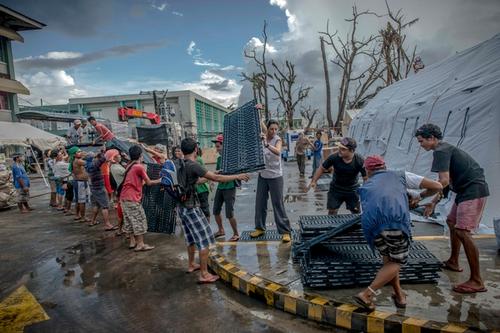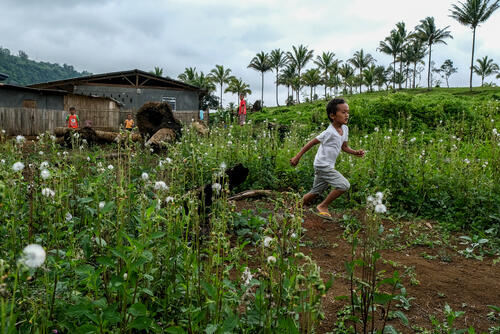In 2021, we launched a new TB project in the densely populated and impoverished Tondo area of the capital, Manila.
In the southern city of Marawi, we continued to provide general and mental healthcare to people displaced and affected by the armed conflict that erupted between the army and a group related to the Islamic State group in 2017.
In 2020 and 2021, our teams supported in the response to the COVID-19 pandemic and, in 2022, to the typhoon Rai response in Northern Mindanao.
Our activities in 2023 in the Philippines
Data and information from the International Activity Report 2023.
56
56
€1.6 M
1.6M
1984
1984
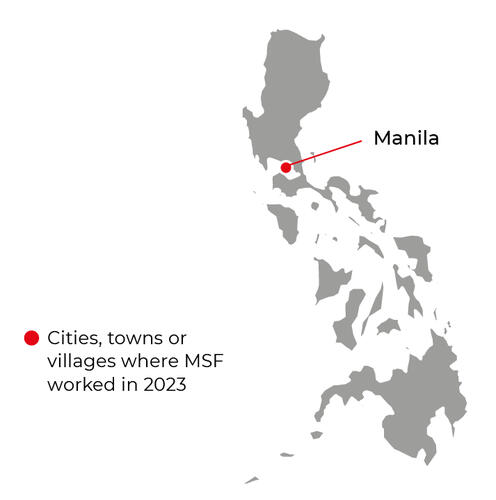

15,800
15,8
750
75
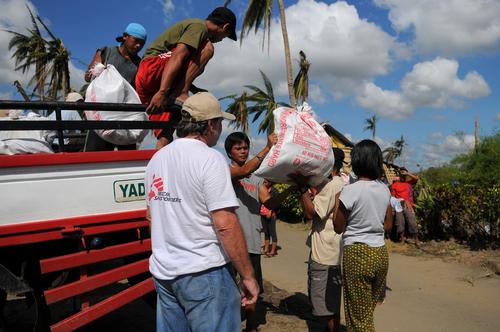
MSF helps villagers rebuild their homes after typhoon Haiyan
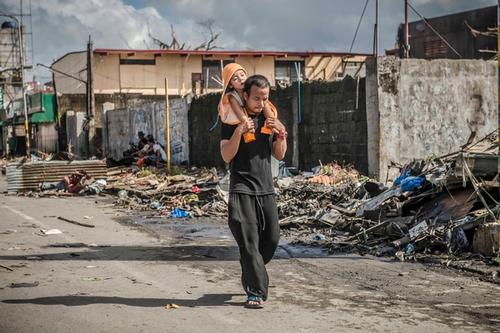
Typhoon Haiyan: Challenges to deliver aid persist
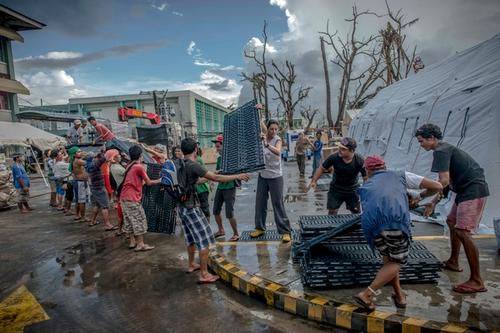
I will call her Hope
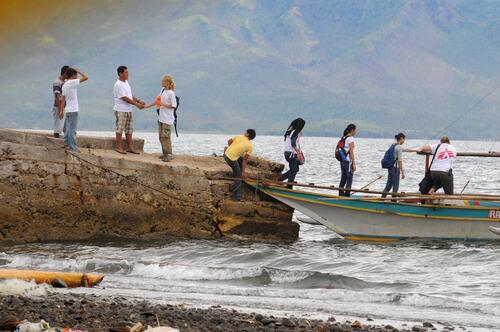
“Roofless, homeless, but not hopeless”
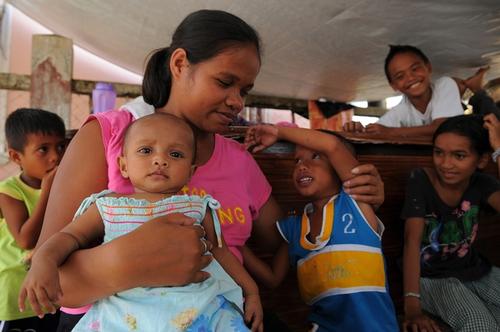
“At night he can't sleep”
